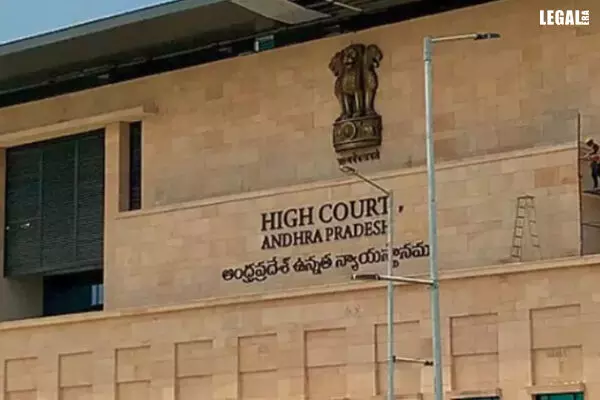- Home
- News
- Articles+
- Aerospace
- Artificial Intelligence
- Agriculture
- Alternate Dispute Resolution
- Arbitration & Mediation
- Banking and Finance
- Bankruptcy
- Book Review
- Bribery & Corruption
- Commercial Litigation
- Competition Law
- Conference Reports
- Consumer Products
- Contract
- Corporate Governance
- Corporate Law
- Covid-19
- Cryptocurrency
- Cybersecurity
- Data Protection
- Defence
- Digital Economy
- E-commerce
- Employment Law
- Energy and Natural Resources
- Entertainment and Sports Law
- Environmental Law
- Environmental, Social, and Governance
- Foreign Direct Investment
- Food and Beverage
- Gaming
- Health Care
- IBC Diaries
- In Focus
- Inclusion & Diversity
- Insurance Law
- Intellectual Property
- International Law
- IP & Tech Era
- Know the Law
- Labour Laws
- Law & Policy and Regulation
- Litigation
- Litigation Funding
- Manufacturing
- Mergers & Acquisitions
- NFTs
- Privacy
- Private Equity
- Project Finance
- Real Estate
- Risk and Compliance
- Student Corner
- Take On Board
- Tax
- Technology Media and Telecom
- Tributes
- Viewpoint
- Zoom In
- Law Firms
- In-House
- Rankings
- E-Magazine
- Legal Era TV
- Events
- Middle East
- Africa
- News
- Articles
- Aerospace
- Artificial Intelligence
- Agriculture
- Alternate Dispute Resolution
- Arbitration & Mediation
- Banking and Finance
- Bankruptcy
- Book Review
- Bribery & Corruption
- Commercial Litigation
- Competition Law
- Conference Reports
- Consumer Products
- Contract
- Corporate Governance
- Corporate Law
- Covid-19
- Cryptocurrency
- Cybersecurity
- Data Protection
- Defence
- Digital Economy
- E-commerce
- Employment Law
- Energy and Natural Resources
- Entertainment and Sports Law
- Environmental Law
- Environmental, Social, and Governance
- Foreign Direct Investment
- Food and Beverage
- Gaming
- Health Care
- IBC Diaries
- In Focus
- Inclusion & Diversity
- Insurance Law
- Intellectual Property
- International Law
- IP & Tech Era
- Know the Law
- Labour Laws
- Law & Policy and Regulation
- Litigation
- Litigation Funding
- Manufacturing
- Mergers & Acquisitions
- NFTs
- Privacy
- Private Equity
- Project Finance
- Real Estate
- Risk and Compliance
- Student Corner
- Take On Board
- Tax
- Technology Media and Telecom
- Tributes
- Viewpoint
- Zoom In
- Law Firms
- In-House
- Rankings
- E-Magazine
- Legal Era TV
- Events
- Middle East
- Africa
Andhra Pradesh High Court Orders Municipal Corporation To Decide On Property Tax Interest Waiver

Andhra Pradesh High Court Orders Municipal Corporation To Decide On Property Tax Interest Waiver
The Andhra Pradesh High Court, in a judgment delivered by Justice Ravi Cheemalapati, has directed the Municipal Corporation to decide on a petition seeking a waiver of interest on property tax arrears. The Court also restrained the corporation from taking any coercive action against the petitioner until the representation is addressed.
The petitioner had paid a total of ₹25,09,386 towards property tax dues, including arrears and interest, as per a previous court order. However, the petitioner claimed that a portion of this amount, approximately ₹9,91,593, represented penalties and interest that should be waived under a government order (G.O.Ms. No. 34). The petitioner had submitted a representation to the Municipal Corporation requesting this adjustment, but the corporation had not yet responded.
The situation became more urgent with the issuance of a new government order, G.O.Ms. No. 35 dated February 29, 2024. This order offered a one-time waiver on interest accumulated on property tax arrears up to the year 2023-24. However, to avail of this benefit, all outstanding dues needed to be cleared by March 31, 2024.
The petitioner argued that due to the corporation's inaction on their initial representation, they were unable to submit a fresh application under the new G.O. While they acknowledged not applying under the new order, they maintained their right to a waiver under the previous order (G.O.Ms. No. 34).
The Municipal Corporation countered that the petitioner could not claim any grievance without formally applying for the waiver under the new G.O.
The Court acknowledged the petitioner's predicament. The outstanding amount from the previous representation needed to be settled before a new application could be considered. However, the court also recognized the time constraint imposed by the new G.O.'s deadline.
The Court instructed the Municipal Corporation to undertake several actions. Firstly, it granted the petitioner permission to submit a fresh application for a waiver under G.O.Ms. No. 35, issued on February 29, 2024. Secondly, the corporation was mandated to review this new application alongside the petitioner's original representation dated March 21, 2023. Subsequently, a conclusive decision regarding the waiver, incorporating both previous and current directives, must be conveyed to the petitioner within a four-week timeframe from the receipt of the application under G.O.Ms. No. 35. Additionally, the Municipal Corporation was prohibited from initiating any coercive measures against the petitioner until a resolution regarding the waiver has been reached.



